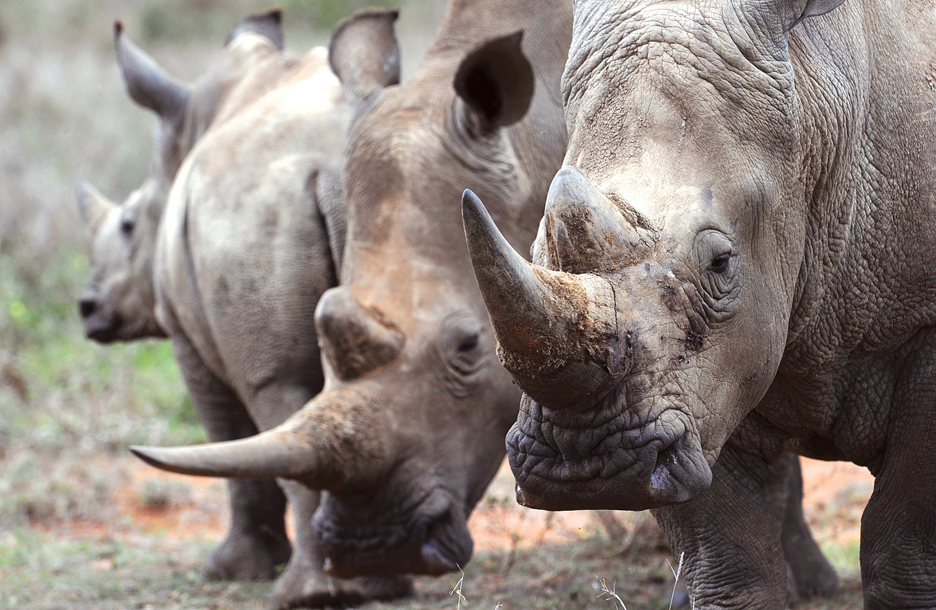AGENCE FRANCE-PRESSE
With camouflage uniforms, assault rifles, night vision goggles, thermal imaging devices and radios, wildlife rangers in Kenya’s Ol Jogi rhino sanctuary prepare for night patrol in the “war” against poaching.
“It sounds crazy, but it’s actually a war,” said Jamie Gaymer, head of security for the vast sanctuary. “It is organized crime on an international level, and it is completely out of control. And these are the guys on the front line who are having to put their lives at risk in order to protect these animals.”
Through the thick bush, 20 men from the local community head out in pairs into the reserve, which covers 240 square kilometers. Some men spend the night on patrol creeping through the forests; others take up ambush positions.
Trained by the Kenya Wildlife Service and police, the men in the security force also are reserve police officers, which allows them to carry weapons. The teams have had military training to even the odds in a potentially deadly battle with a “well-equipped enemy,” Gaymer said.
They risk their lives every night. The poachers they hunt shoot on sight, and the rangers also must be watchful for the wild animals themselves: elephants, lions, buffalo and leopards.
“It’s dangerous, but it is also the danger that gives me a job and allows me to eat,” said 27-year-old ranger Joseph Nang’ole. “I have children, and if we do not protect these animals, my children will not be able to see them.”
Conditions can be harsh. The night is long, cold and often wet. But for the head of the unit, Benson Badiwa, protecting the rhinos is key. Their mission is to protect the rhinos in Ol Jogi, including 20 southern white rhinos and 46 critically endangered eastern black rhinos. Fewer than 800 black rhinos are left, with the majority in Kenya.
On the black market, a rhino horn is worth twice its weight in gold: as much as $80,000 per kilogram in the Middle East or Asia. A poacher receives between $10,000 and $15,000 per kilogram, a fortune for a night’s work.
Their weapons are sometimes rented for $200 to $300 a night from unscrupulous police or soldiers.
In July 2014, Ol Jogi suffered the worst massacre of rhinos in Kenya in more than 15 years. Four rhinos were killed in a coordinated double attack, something never seen in Kenya, said Gaymer, who suspects the organized gangs had inside knowledge.
As in any war, intelligence is crucial, and Gaymer maintains a network of local informants who report on those suspected of links to poachers. About 130 people are working to protect the rhinos at Ol Jogi, with some costs covered by the tourists who visit.


Comments are closed.